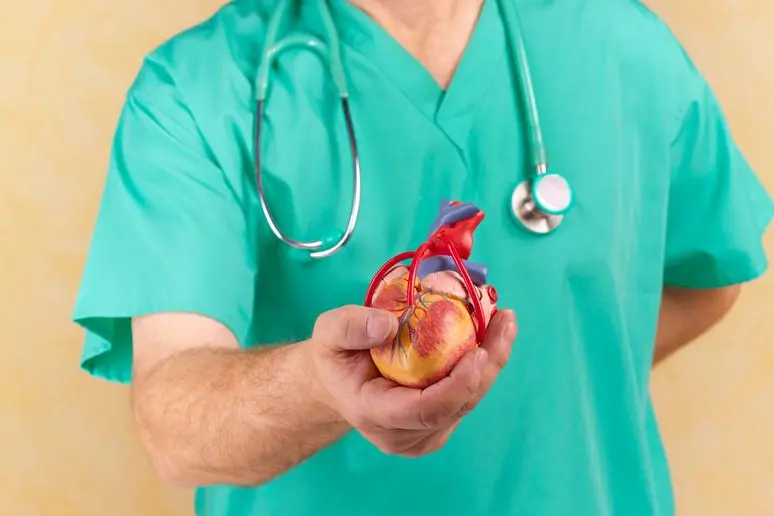PHOTO
Cardiac health is important for everyone, but it’s especially critical in the post-Covid-19 era, says Dr. Muhamed Shaloob, Specialist Cardiology at JTS Medical Centre
Cardiac health refers to the state of the heart and blood vessels. It includes the heart’s pumping function and the health of a person’s blood vessels, including the arteries and veins. Cardiovascular disease describes several conditions that can affect your heart, blood vessels, and circulation. Cardiovascular disease is the leading cause of death worldwide, and it’s also one of the most preventable.
The prevalence of Covid-19 infection associated with cardiac injury is more common than previously thought. Risk factors for severe Covid-19 and related multi-organ involvement includes the longer duration of symptoms, old age, and pre-existing cardiopulmonary diseases. Patients with a history of hypertension, diabetes mellitus, coronary artery disease, or atrial fibrillation are at a significantly higher risk of having cardiac involvement with Covid-19.
Post-Covid era cardiac injuries are of a wide-ranging severity, ranging from asymptomatic left ventricular systolic dysfunction to acute end-stage heart failure, requiring cardiopulmonary support. Acute left ventricular systolic dysfunction can manifest as dyspnea, causing difficulty in lying down. The prognosis for this condition depends on its severity and the degree of underlying cardiac abnormalities (such as pre-existing coronary artery disease). Patients with evidence of significant myocardial damage or risk factors for myocardial damage should be referred to a center specialising in cardiomyopathy.
In one study conducted this year, researchers used records from the US Department of Veterans Affairs (VA) to estimate how often Covid-19 leads to cardiovascular problems. They found that people with the disease faced substantially increased risks for various cardiovascular conditions — including potentially catastrophic issues such as heart attacks and strokes — in the year after being infected with the Corona virus SARS-CoV-2.
Furthermore, the researchers also went on to say these complications can happen even in people who seem to have completely recovered from a mild infection. Cardiovascular issues after a SARS-CoV-2 infection can decrease a person’s quality of life over the long term. However, treatments do exist for these problems.
It’s vital to undergo a regular cardiac checkup post covid. It reduces the risk of heart disease, stroke, and other cardiovascular diseases through education, risk assessment, promotion of patient-provider communication, and collaboration. Also, it involves identifying, treating and preventing problems before they can lead to more serious health complications.
Your cardiologist can understand any relevant history to suggest Covid complications. They may do a detailed clinical examination, Electrocardiogram (ECG) to look at the heart’s electrical system and an Echocardiogram to check the heart muscles’ pumping and valve functioning. If any problems are noted, the cardiologist starts the patient on medications, and further evaluation is scheduled as required.
Copyright © 2022 Khaleej Times. All Rights Reserved. Provided by SyndiGate Media Inc. (Syndigate.info).





















